Diet, in my opinion, is by far the most important point I can make about keeping and breeding Eclectus parrots. Many pet owners and even breeders, for that matter make the mistake of feeding Eclectus parrots in the same way they feed their African Grey parrot or Macaw or Cockatoo. They treat them as seedeaters. Eclectus parrots will eat seed, but they are not seed eaters. Their diet in the wild consist of native fruits such as figs, native berries and native nuts. The main thing most people forget or do not know is that Eclectus Parrots are arboreal in habit. Tree top dwellers, they forage for food in the canopy of the tropical rainforest. The three species I mention above, the African Grey parrot, Macaw and Cockatoo all feed on the ground, and this is why they are regarded as seedeaters. In all my years of collecting and bird watching I have only seen Eclectus come to ground in the wild once, and this was during severe drought.
So, if we are going to keep and breed these beautiful birds, then it is up to us all to at least feed them correctly. We must take a common sense approach to their diet and choose the fresh fruit and vegetables closest to their natural diet as we can, avoid giving them foods that are not good for them. A rule of thumb I use with these birds when choosing something new is (1) would I eat it and (2) is it good for me. If the answer is no to both questions, then why feed it to your birds?
The daily food preparation I use for my birds depends on what is fresh and in season, which can vary from month to month, with the best being available during spring and summer. As an example, each morning I would prepare the fruit and vegetables that would include, apple, pear, banana, kiwi fruit, strawberries, grapes, vegetables such as capsicum (bell peppers) green beans, snow peas, carrot, celery, silver beet storks (swiss chard) and sprouts such as mung bean and grey sunflower. The fruits and vegetables are all washed in clean water and then diced into reasonably sized pieces. It is important not to make the pieces too small, because Eclectus like to take pieces of fruit back up to the perch to eat. After the morning selection of fruit and vegetables have been chopped, they are placed in a plastic bucket. To this I add a quantity of cooked maize (seed corn). The maize is prepared the night before by adding a one litre container full of whole maize seed to a large saucepan, cover with water and bring to the boil, cook until soft then drain off the water, wash a couple of times with cold water and store in the fridge overnight.
The cooked maize is added to the chopped fruit mix and mixed by hand. When feeding out to the birds I place either a fresh lettuce or silver beet leaf that has been washed in the feed dish. I then add a about a handful of the maize and fruit and vegetable mix. In another dish, I give a small quantity of seeds. This is mainly a budgie breeder’s mix containing Japanese and Hungarian millet and canary seed. To this I add only about a tablespoon full of grey sunflower seeds. Too much sunflower seed is not good for Eclectus as fats tend to be stored. If overfed, they will become overweight and tend to sit, and prefering to climb around their aviary rather than fly, so it is important not to over feed them with sunflower seed.
When in season, special treats such as guavas, pomegranates, passionfruit, rock melon, paw-paw and mango are offered. My Eclectus especially enjoyed the mangos and spent many hours feeding and chewing the seed. Eclectus also love to eat chillies, but these should be fed in moderation. When preparing the daily food for the birds, care should be taken to make sure that all fruit and vegetables are free of pesticides. Even fruit purchased from the fruit market should be thoroughly washed before feeding it to our birds.
Eclectus parrots love to feed on native fruits and blossoms such as sandpaper figs, hawthorn, cotoneaster (pyracantha) berries and blossoms of the grevillea (bottlebrush) shrubs. Fresh greens such as dandelion, including the roots and flowers, are enjoyed by Eclectus parrots, especially during the breeding season when young are in the nest.
In the past few years there has been an upsurge in the feeding of pellets to parrots and cockatoos in captivity. In my opinion pellets, should not be fed to our Eclectus parrots. My main concern is we do not know what is in these pellets, even though the makers will tell us that its all good for our birds. Most pellets contain man made vitamins which is not good for our birds. Eclectus get enough vitamins, if fed the correct fruit and vegetable diet as described above. If Eclectus get fed vitamins, they get stored not absorbed, and in time may affect their liver.
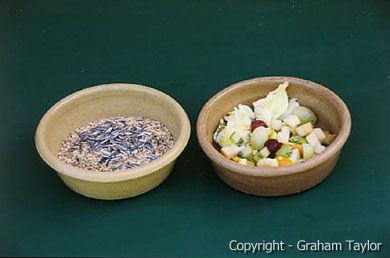 Caption 001: Daily amount of seeds and fruit for a pair of Eclectus Parrots. Note: Example of the amount of seeds and fruit that are required daily for a breeding pair of Eclectus Parrots-Note: the small amount of sunflower seeds. 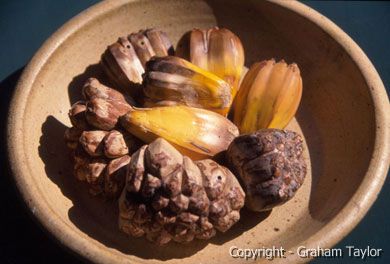 Caption 002: Pandanus palm fruits. Notes: These pandanus fruits are a regular part of the Eclectus parrots diet in the wild. 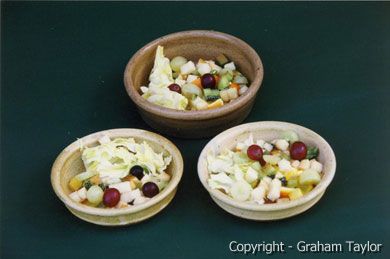 Caption 003: Fruit and vegetable should be fed each morning. Note: To keep our Eclectus parrots healthy, a daily diet of fresh fruit and vegetables is important. 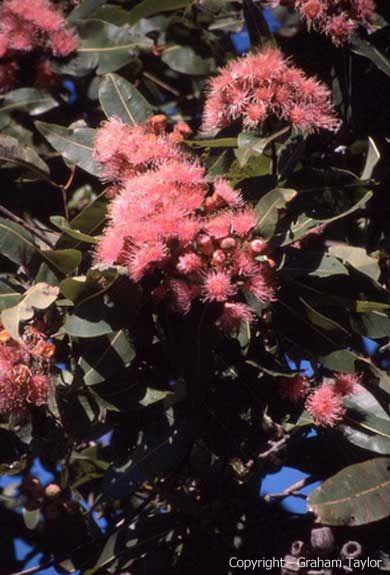 Caption 004: Western Australian Flowering Gum. Note: The blossoms and nuts from the Western Australian Flowering Gum are a very good for Eclectus to forage in. 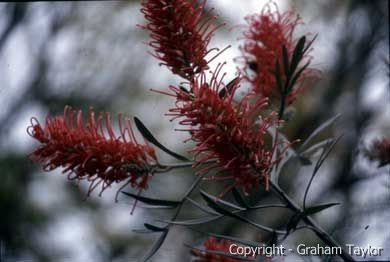 Caption 005: Australian bottlebrush blossoms. Note: Blossom’s from flowering native shrubs are a good source of food for Eclectus Parrots. 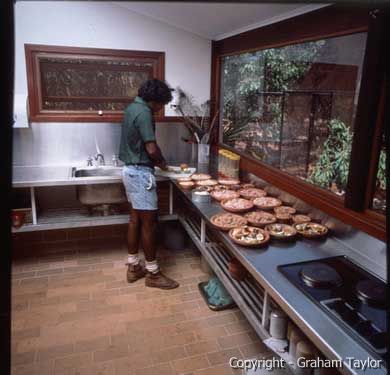 Caption 006: The food preparation room at Pearl Coast Zoo. Note: All the daily diets are prepared here in the food preparation room at Pearl Coast Zoo in Broome Western Australia. 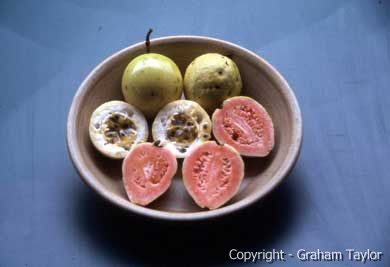 Caption 007: Favourite fruits, guava and yellow passionfruit. Note: The guava and yellow passionfruit are among the most favourite fruits that the Eclectus parrots enjoy and should be fed on a regular basis. 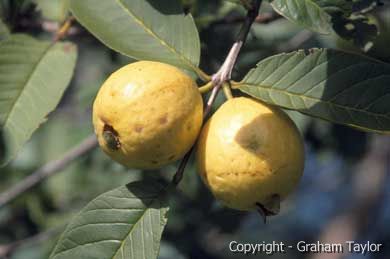 Caption 008: Guava Fruit. Note: These Guava’s are one of the most favoured fruit of Eclectus parrots. 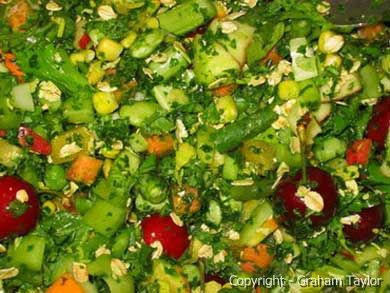 Caption 009: Dean Moser’s fruit and veggie mix. Note: Dean Moser prepares this daily fresh fruit and vegetable mix for his Eclectus parrots. 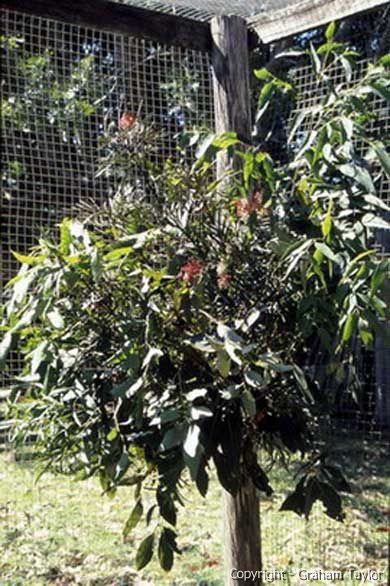 Caption 010: Eucalyptus and Grevillea branches for browsing. Note: Browsing should be given a couple of times a week to breeding pairs. This keeps them in good feather and gives them something to do each day. |
